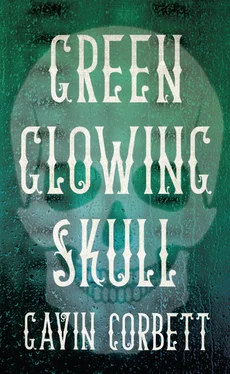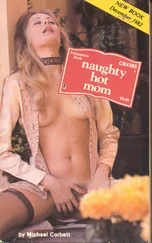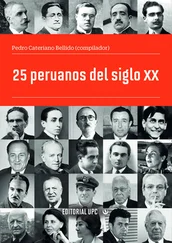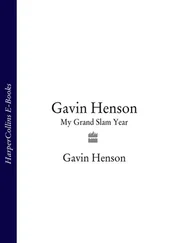‘A year from now the rock and roll will be shown to have been a passing craze,’ said Denny, ‘and we’ll be back on with the real stuff. I’m going, fellows, this isn’t waffle, I’m going to America, and that’s it, just you see.’
‘You’d better run!’ said Billy. ‘Your ship is sailing!’
‘I’m going to go, I will!’ said Denny. ‘Unless …’
Beast Features lifted his hand to stay Billy’s hooting, and, needing to take a deep breath himself, said, ‘Unless, Denny?’
‘There’s another thing I might do. That we might do. A proposal, if you like. I don’t know how this sounds, but … Perhaps, well … I was thinking: a tenor trio. Me. You, Beastie. You, Billy. The three of us. I even have a name: the White-Headed Boys.’
The laughter must have been heard all the way back up Leinster Market.
‘Have you even flippin’ heard Billy sing before?! Have you heard me sing?! The White-Headed Boys! Oh boy, indeed! Lennox bloody Robinson’s already kicking in his grave, I can hear him! Will you go off to America now! Go off and stop stinking up the air with your horse manure! And don’t forget to swing by the Gaiety along the way, because you’ve a ticket to see Otello this evening.’
‘Lennox Robinson doesn’t have copyright on that name! And I have heard Billy sing, and he has a voice of very great potential! And I’m offering you both greatness and glory! And … yes. You’ll go away and think about that now! And … oof! Both of you — to Hell and to Hecate with you!’
Otello ! He patted his breast pockets.
‘You’d forgotten, you drunk! Go up there and watch Paolo Silveri and see how a real singer should conduct himself! “White-Headed Boys”! Go on, piss off!’
***
He should have gone home to Rathmines for a wash and a change of clothing, but he didn’t. Instead he spent the time left before the performance wandering the streets, about the Green mainly; four or five circuits of the perimeter, past Ardilaun again, the horse trough, Loreto, the College of Surgeons. He opened another button on his shirt, sucked the air hard to feed off its freshness. But all that he tasted was on the turn: something rotten from the York Street tenements, the muck of the leaves on the ground. He had once told Aisling that he knew Silveri; or at least that Silveri had, like himself, received tuition from Tosi. At any rate, Silveri, a regular performer in Dublin in those days, would have heard enough about the Maestro’s Irish charge that he’d welcome him always into his dressing room. And he had reminded Aisling of this again, before he came out.
The walk had not had the effect he’d wanted. By the time he entered the theatre foyer he was tired; his goose-pimpled skin shivered in the heat; he felt fluey, pooey; in that awful between-state place. Opera evenings in Dublin were democratic gatherings: women bossed their men around and told them what to do for them and what to think of this and that aspect of this or another production. He mooched in a corner. He himself lived in rooms in the former childhood home of orientalist Lafcadio Hearn in Rathmines; he wanted to tell someone, because someone was talking about The Mikado .
He kept slipping off into sleep during the show. All that booze and all of that air made it sleepy time for his body, and his body was being a brat. From the dark of the circle the image of the stage was soft and vibrant like the projection of a loose slide. Twice or four times he woke gulping air and feeling as if he were falling. Gravity surged through him in a crook shape: down, then through his stomach. Once he opened his eyes and there was Silveri, murdering his part. Silveri was a baritone; someone had had the terrible idea of moving him up to tenor. He died there with Silveri, back into sleep with the steep pitch of the balcony.
With a clunk and a clatter he was let out through the fire doors. He felt better now, although a smell of heated felt and gloss paint and burning electrics lingered in his damned nostrils. He came out of Tangier Lane into Grafton Street, splashing through puddles of milk and oil. He looked left and right, and up he started into the foothills.
He came out the other side of sickness, feeling bright even, but sad. Over the hump of the canal bridge at the end of Richmond Street rose the mint-green dome of the church of the township. In the dark it was especially vivid. He experienced a deep sadness for all he was to leave. His father’s side going back generations had been Dublin people. His mother’s father’s people too. Soldiers stumbled away from the cricket club with their heads on the shoulders of women they’d only just met. University students ran in coursing packs. These were the transient. Then there were the lonely. It was the township of both these types. The passing-through, and the people worse than himself that lived in cornered-off spaces on sagging boards. They wrote letters to sisters saying they were not so bad now. Anyhow. He was not so bad. He’d had his revelation and his mind was made up. He’d go in to Aisling and tell her he loved her and damn her if she didn’t believe him.
He leaned against the railings outside the house. Downstairs’ cat Tiddles was on the little patch of green by the basement, arched and on the defensive. It was a lovely little cat. ‘Tiddles,’ he called to it. He went down on one knee and stretched his arm in through the bars.
He washed his face in the sink that all the flats shared. The light was weak, yellow and cold. He ran the tap and let the basin fill almost to the brim. There was no stopper in the plughole, and he watched the water very slowly drain away, thinking of what it would be like to be sick in a foreign country, to fight and fend, to freeze in a vest.
On evenings she wasn’t working she liked to light the fire, because there was one in the room, and it was romantic. She loved the fire, and she’d got permission from the landlord to paint the iron surround white, and while she’d been at it she also painted the detailing, the finicky flowers and ferns, so that now the surround was more green and red than white. They’d read all about Lafcadio Hearn, and they liked to think his spirit was still in the room, of course. He, too, had gone to America.
The fire was not low in the grate as it usually would have been at this time. Aisling too looked fresh and alive: she was sitting high in the bed with his pillows and her own propping her up. She was waiting for him with a warm smile, and the book she’d been reading was turned down on the blanket over her tummy. Her face looked soft and glossy under beauty cream, and her hair was tied back out of it. The smile dissolved as she saw the bruise on his head.
‘Ah. Don’t worry about that. I was out with the boys.’
‘Come here to me.’
He sloped over to the bed and sat down.
‘Come here!’
He threw his feet up. She rummaged about his hair with her fingers.
‘We were only acting the maggot. Ouch!’
He tittered.
He said, ‘You’re lucky you didn’t know me in my rugby-playing days.’
‘You and your boys,’ she said, her voice now full of relief and tenderness, and her fingers too, full of tenderness and affection.
‘What’s the book?’ he said. He could see what the book was: it was a motoring guide to Ireland.
‘I’m planning some weekends and day trips.’
‘And who’ll drive us?’
‘It’ll have to be me, won’t it?’
‘It might yet be me.’
‘That’ll be the day.’
She began humming a rock-and-roll tune.
He rested his head fully back on the mattress. His coat and shoes were still on him.
‘What did you do tonight?’ he said.
‘I was over at Jim and Sheila’s. We played cards. And then Jim went off to his parents and then me and Sheila talked about nonsense.’
Читать дальше
Конец ознакомительного отрывка
Купить книгу












